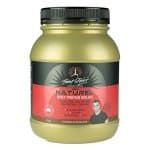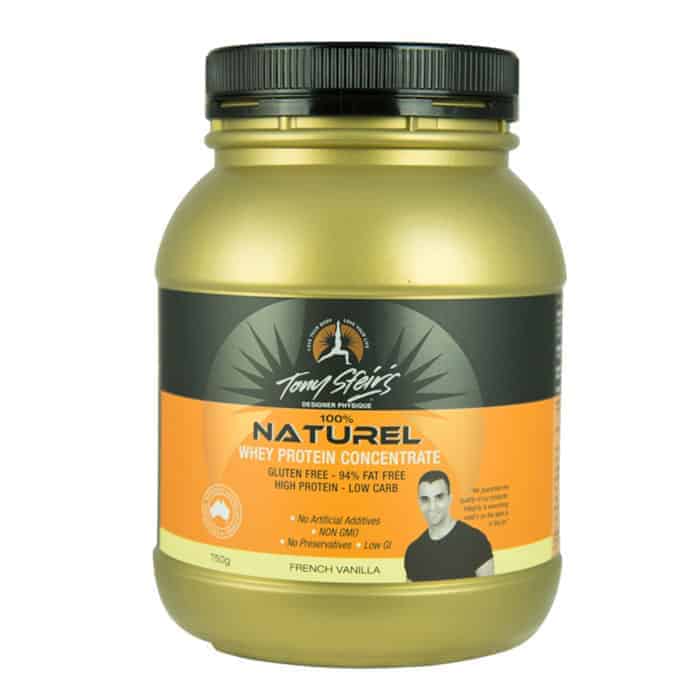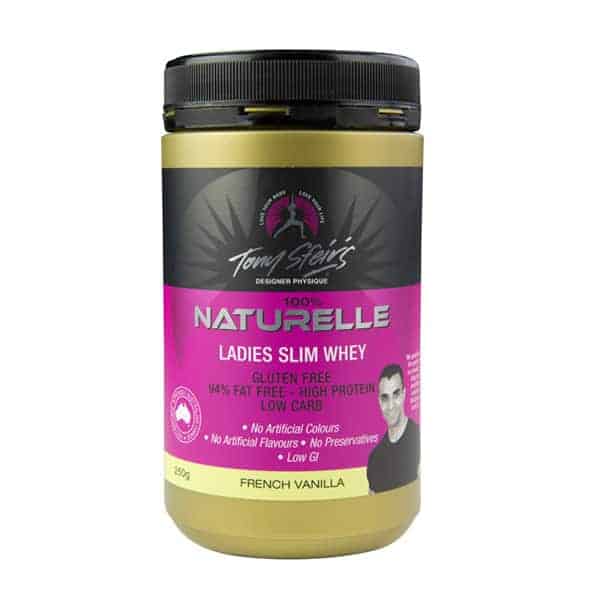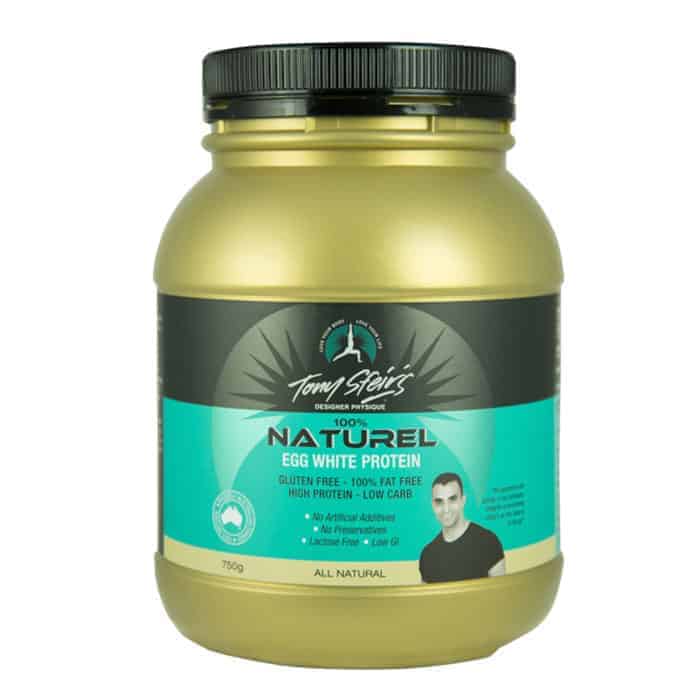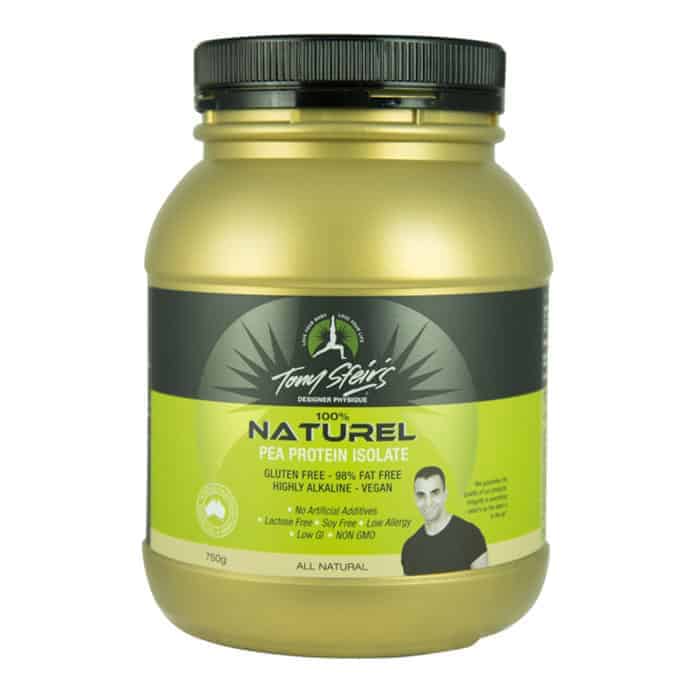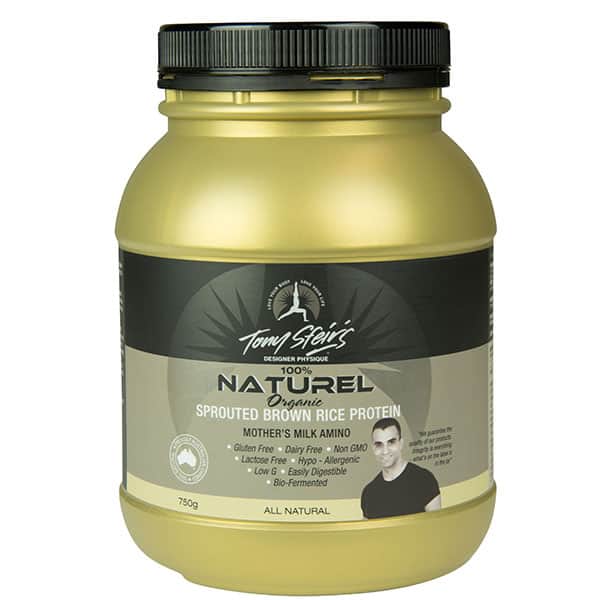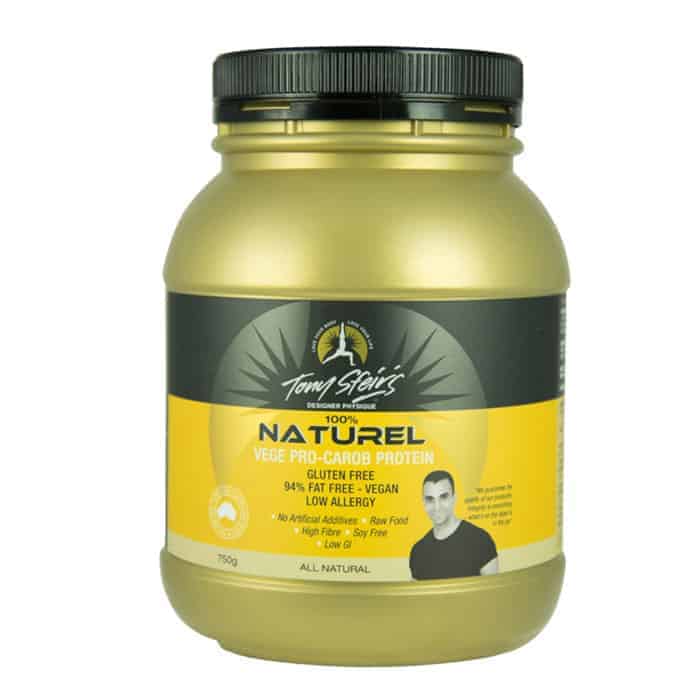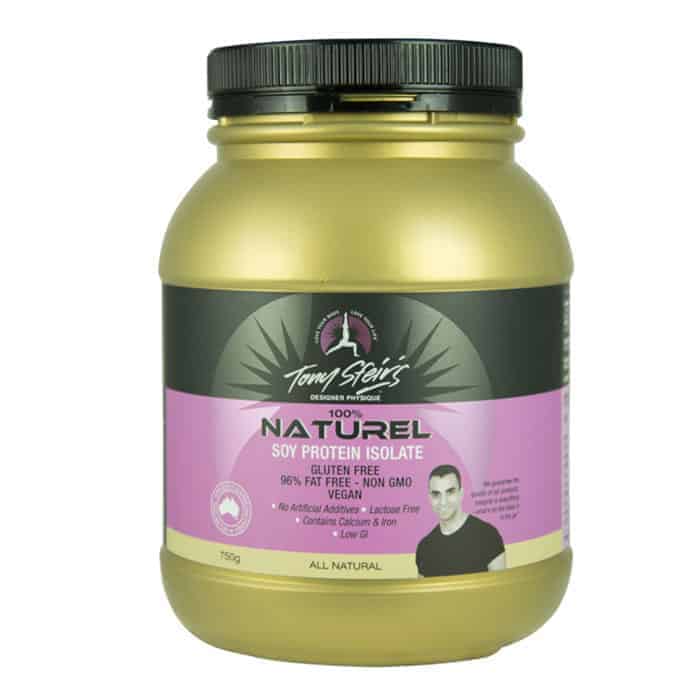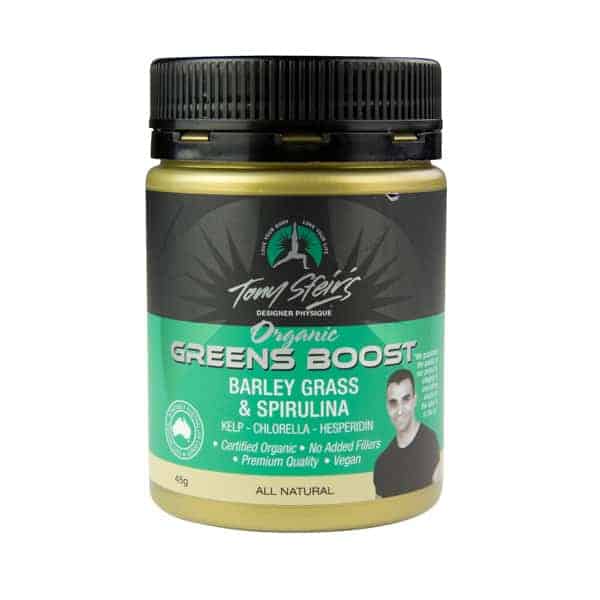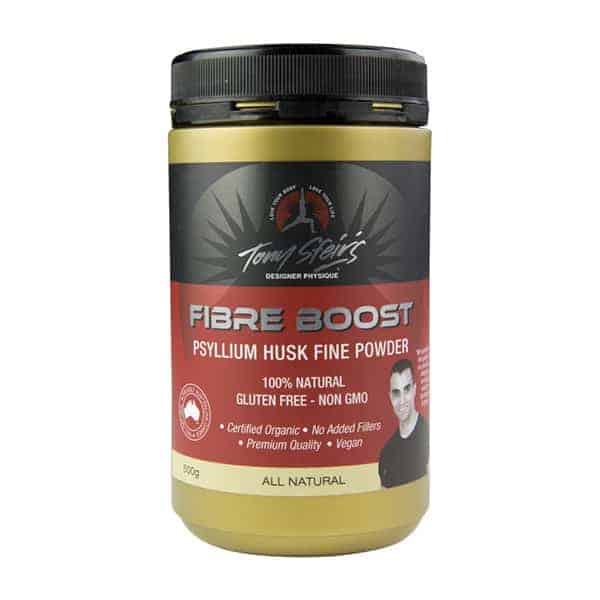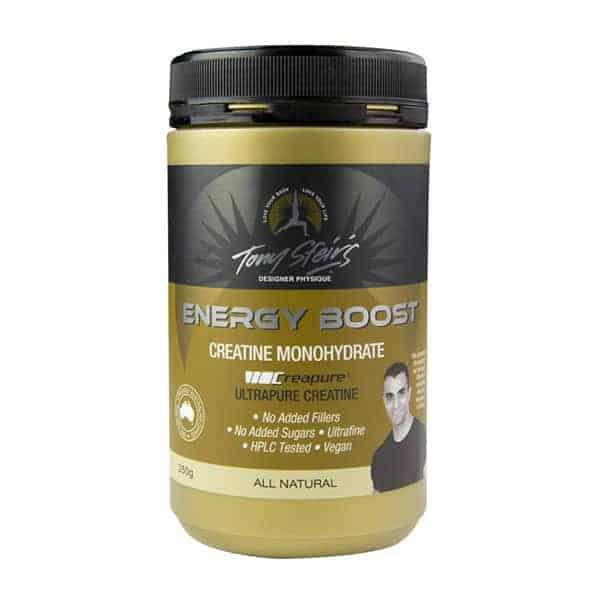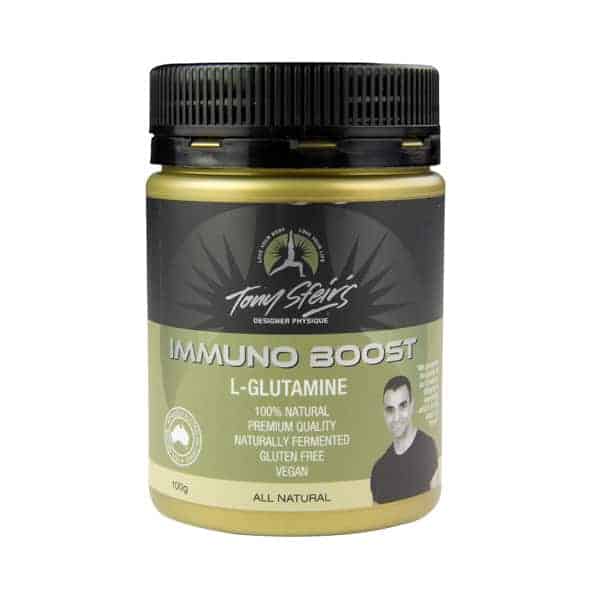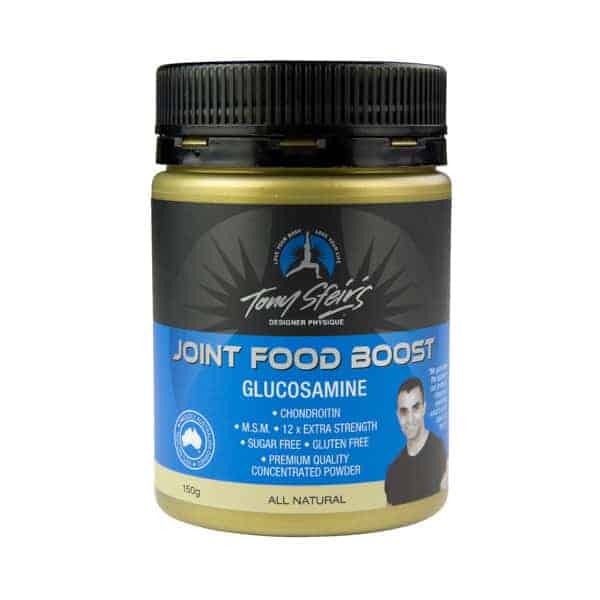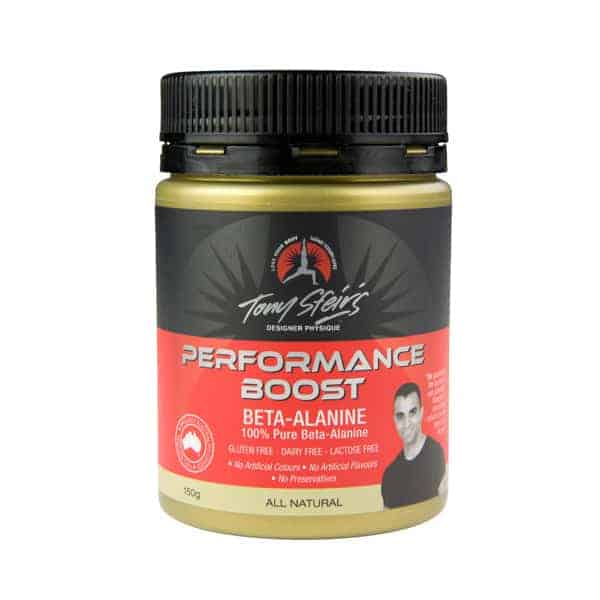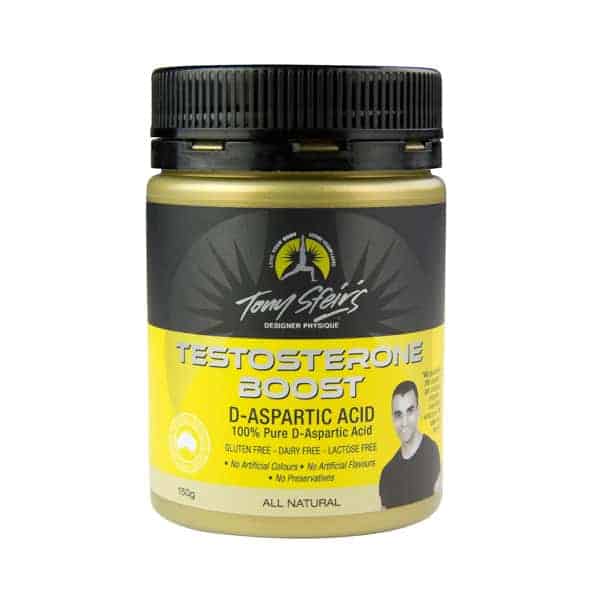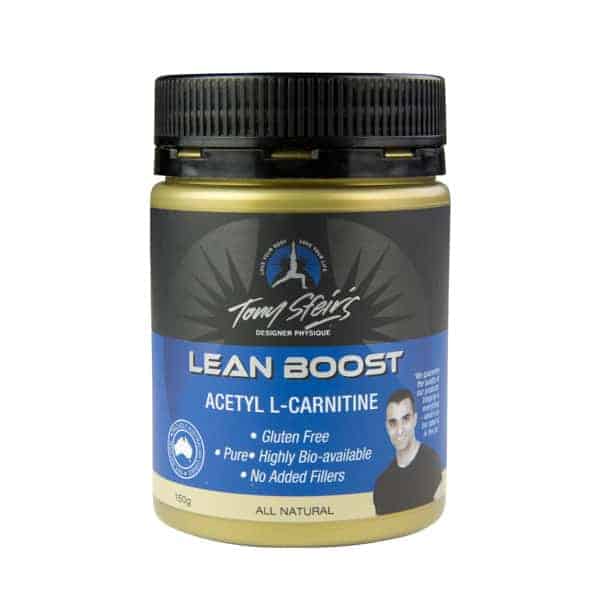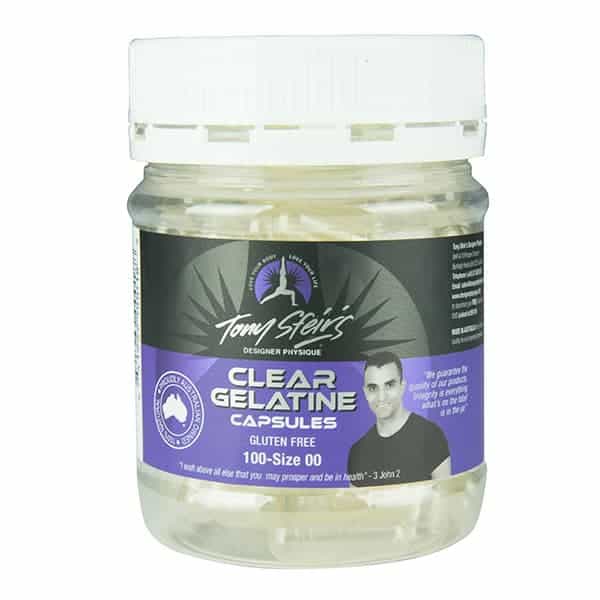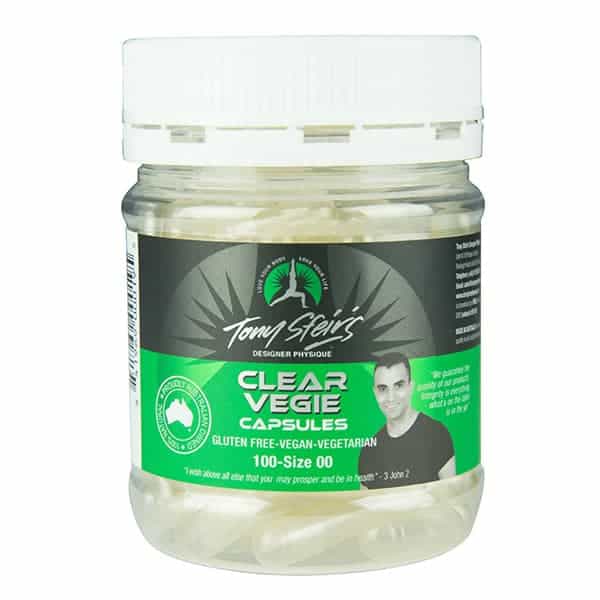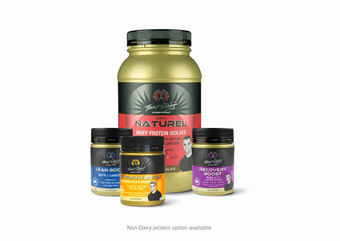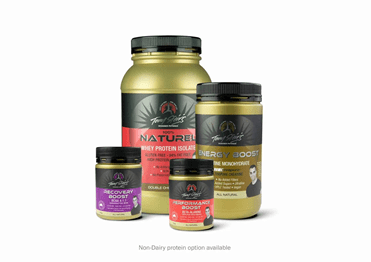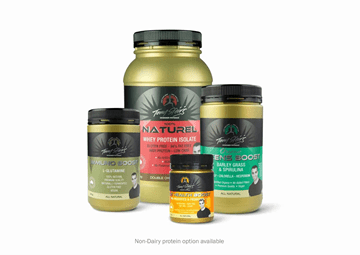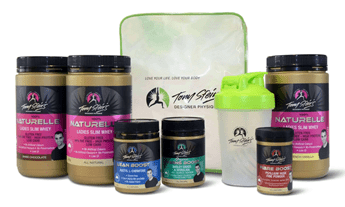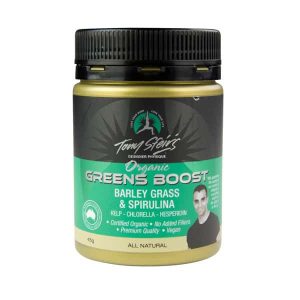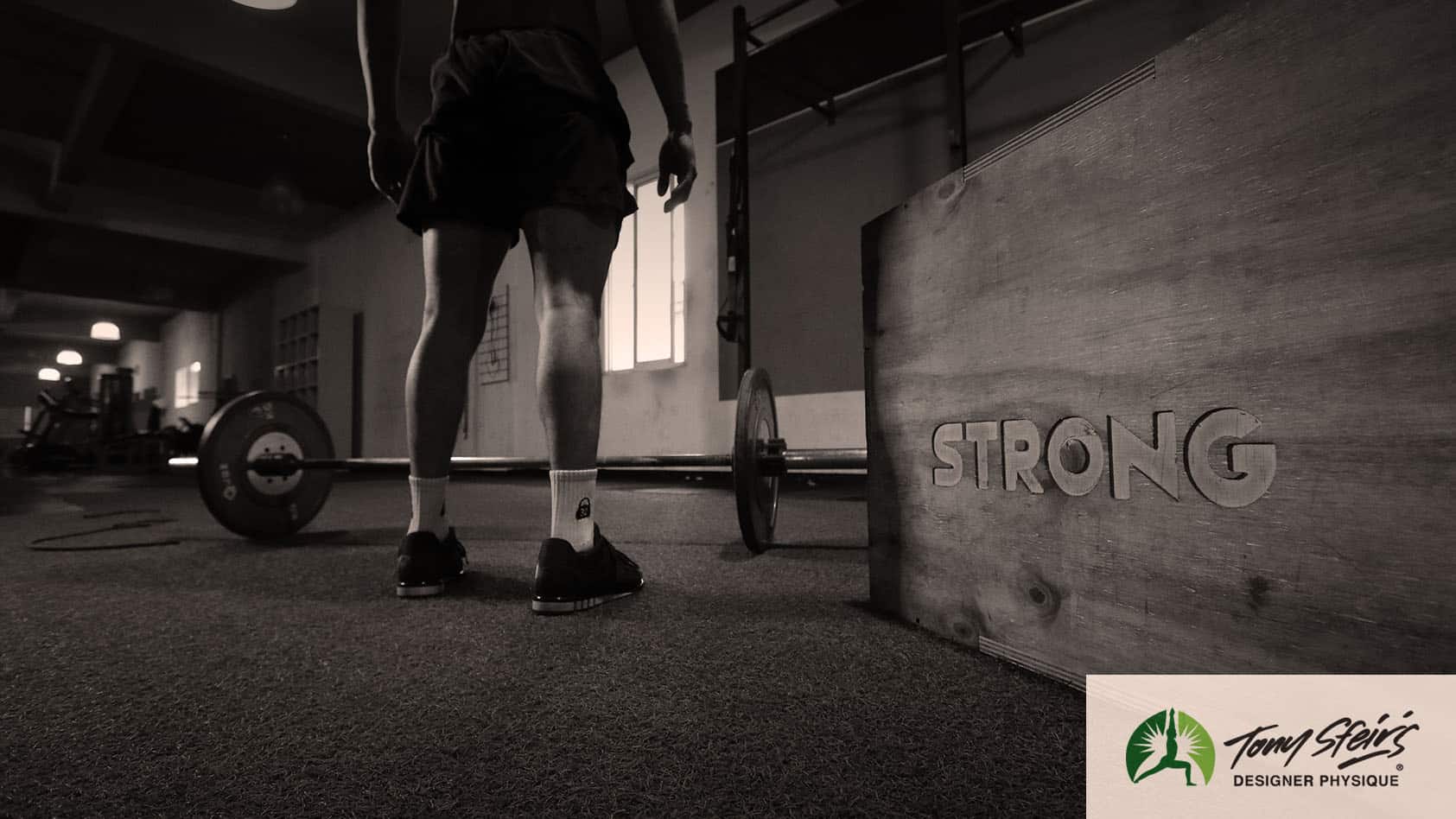Are your exercising goals not hitting the mark? Are you finding that your recovery isn’t as fast as it used to be? You may not be reaping the athletic benefits of L-Glutamine.
We store this naturally occurring non-essential amino acid in our muscles, and generally, we make enough of it for low level activity and short bouts of physical stress (Bermon et al., 2017).
For hard-charging athletes, bodybuilders or extremely active individuals, on the other hand, you may not be producing nearly enough to support your goals.
This makes supplementing with L-Glutamine essential if you want to maximise exercise performance, speed up recovery and maintain good gut health (which is absolutely important as well).
In this article, we’ll discuss the specific game-changing benefits of L-Glutamine when you incorporate it into your daily sports supplement regime.
Looking for the Basics of L-Glutamine? Read our article on L-Glutamine: What is L-Glutamine? What Are The Benefits?
L-Glutamine Assists with Muscle Growth
The first and possibly one of the most well-known uses for L-Glutamine in sports and fitness is its ability to prevent muscle breakdown and aids in muscle growth.
L-Glutamine exerts its anti-catabolic, or anti-muscle breakdown effects through its role in wound healing and tissue regeneration.
When we workout, we create stress and “micro tears” on our muscles through intense physical exercise, which also uses up our glutamine stores (Wilmore, 2001).
Depending on the intensity of our training session, this can leave us quite deficient in glutamine post-exercise, hindering our ability to repair and create muscle growth.
Of course, we also need a good whey protein or plant protein powder post-exercise, but when we supplement with L-Glutamine, we can allow our concentrations to remain adequate during our workout (Rahmani et al., 2013).
So, if your muscle gains aren’t hitting the mark, L-Glutamine might be something you need to consider.
Our Sprouted Brown Rice Protein Powder is a great option for individuals looking to optimise exercise performance, endurance, and recovery, read more here
Accelerates Post-injury Recovery
One thing that L-Glutamine is absolutely essential for, and we briefly highlighted it previously, is its role in wound healing and tissue regeneration.
When our bodies are under extreme stress, whether it be from muscle breakdown through intense exercise or a severe injury, we need higher levels of L-Glutamine for these repair processes to work optimally (Kesici et al., 2013).
During extreme stress, we may also experience higher levels of oxidative stress, which can be harmful to the body, and long term, increase our risk of chronic disease (Pizzino et al., 2017).
When we supplement with L-Glutamine, we protect our cells through the production of glutathione (GSH), one of the body’s most powerful natural antioxidants that protects our cells from damage, and maintains immune function (Richie et al., 2014).
Collectively, all of the above allows us to recover faster from exercise, and may actually decrease the muscle soreness we get after a hard workout (Legault et al., 2015).
Good recovery also requires good nutrients, which is why we also recommend a good Wholefood Greens Powder, such as Designer Physique’s Green Boost.
Read more about our Super Clean, Organic Greens Boost Here.
Supports A Healthy Gut
Lastly, something that gets constantly overlooked in exercise and athletic performance is the health of our gut.
Gut health is super important, because not only does looking after it helps us digest our food properly, but a large portion of it represents our entire immune system (Vighi et al., 2008).
This is why we formulated one of the best Gut Health Boosting Formulas, which you can read more about here.
Similarly to our recovery in muscle, we need L-Glutamine for the growth and repair of the fairly delicate membrane that lines our gut.
When our gut barrier isn’t functioning properly, we can experience a whole range of symptoms including bloating, excessive gas, unexplained allergies, indigestion, and may increase our risk of developing a chronic disease (Fasano, 2020).
Supplementing with L-Glutamine can help improve gut barrier function, which also prevents toxins and pathogens from getting into our body, improving our immune function (Dignass, 2001).
L-Glutamine also supports the health of our gut microbiota so we can digest and extract the highest amount of nutrients from our food, something absolutely critical for athletes and exercise enthusiasts alike (Mohr et al., 2020).
The Takeaway
L-Glutamine is an extremely important non-essential amino acid for individuals looking to maximise exercise performance, post-exercise recovery, and maintain good gut health.
If you want to incorporate L-Glutamine into your sports supplement regime, why not try our Designer Physique Immuno Boost, which contains L-Glutamine sourced from 100% naturally fermented ingredients.
Designer Physique Immuno Boost is also one of the cleanest on the market, with zero additives, preservatives, and absolutely no artificial colours or flavours.
Are you ready to improve your immune health, gut health and recover faster? Pick up a jar today!
References
- Bermon S, Castell LM, Calder PC, et al. Consensus statement: Immunonutrition and exercise. Exerc Immunol Rev. 2017;23:8-50.
- Dignass, A. U. (2001). Mechanisms and modulation of intestinal epithelial repair. Inflammatory Bowel Disease, 7(1), 68-77. https://doi.org/10.1097/00054725-200102000-00014
- Fasano, A. (2020). All disease begins in the (leaky) gut: Role of zonulin-mediated gut permeability in the pathogenesis of some chronic inflammatory diseases. F1000Research, 9, 69. https://doi.org/10.12688/f1000research.20510.1
- Kesici, U., Kesici, S., Ulusoy, H., Yucesan, F., Turkmen, A. U., Besir, A., & Tuna, V. (2013). Effects of glutamine on wound healing. International Wound Journal, 12(3), 280-284. https://doi.org/10.1111/iwj.12098
- Legault, Z., Bagnall, N., & Kimmerly, D. S. (2015). The influence of oral L-glutamine supplementation on muscle strength recovery and soreness following unilateral knee extension eccentric exercise. International Journal of Sport Nutrition and Exercise Metabolism, 25(5), 417-426. https://doi.org/10.1123/ijsnem.2014-0209
- Mohr, A.E., Jäger, R., Carpenter, K.C. et al. The athletic gut microbiota. J Int Soc Sports Nutr 17, 24 (2020). https://doi.org/10.1186/s12970-020-00353-w
- Pizzino, G., Irrera, N., Cucinotta, M., Pallio, G., Mannino, F., Arcoraci, V., Squadrito, F., Altavilla, D., & Bitto, A. (2017). Oxidative stress: Harms and benefits for human health. Oxidative Medicine and Cellular Longevity, 2017, 1-13. https://doi.org/10.1155/2017/8416763
- Rahmani Nia F, Farzaneh E, Damirchi A, Shamsi Majlan A. Effect of L-glutamine supplementation on electromyographic activity of the quadriceps muscle injured by eccentric exercise. Iran J Basic Med Sci. 2013 Jun;16(6):808-12. PMID: 23997909; PMCID: PMC3758038.
- Richie, J. P., Nichenametla, S., Neidig, W., Calcagnotto, A., Haley, J. S., Schell, T. D., & Muscat, J. E. (2014). Randomized controlled trial of oral glutathione supplementation on body stores of glutathione. European Journal of Nutrition, 54(2), 251-263. https://doi.org/10.1007/s00394-014-0706-z
- Vighi, G., Marcucci, F., Sensi, L., Di Cara, G., & Frati, F. (2008). Allergy and the gastrointestinal system. Clinical & Experimental Immunology, 153, 3-6. https://doi.org/10.1111/j.1365-2249.2008.03713.x
- Wilmore, D. W. (2001). The effect of glutamine supplementation in patients following elective surgery and accidental injury. The Journal of Nutrition, 131(9), 2543S-2549S. https://doi.org/10.1093/jn/131.9.2543s

